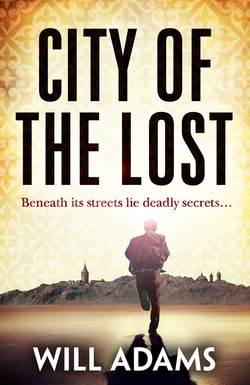Читать книгу City of the Lost - Will Adams - Страница 8
III
ОглавлениеThe shameful truth was that fine music bored Deniz Baştürk. Two years in the steelworks had done damage to his ears and left him with coarse tastes: music to dance to, to drink to, lyrics made for bellowing. When his son Orhan had told him that he wanted to transfer to the Ankara State Conservatory to study it, therefore, he’d thought – or perhaps more accurately hoped – it was a joke.
But such were the perils of falling in love with an artistic woman.
On the concert platform, his son packed his oboe away into its case, took a zurna from his music-bag instead. He’d been granted the rare honour of choosing a piece to perform, to showcase his own talent. But what it was, Baştürk didn’t know. He frowned inquisitively at his wife Sophia; she gave him in return only an enigmatic smile. The lights dimmed a little. The players took up their instruments. His son put the zurna’s reed to his lips, readied his fingers for the first note. Baştürk found himself tensing, hope fighting fear. If this was what his son wanted, it was what he wanted too. But he’d learned the hard way, these past six months, that aspiration wasn’t the same thing as ability.
The first notes, so soft he could barely hear them. Baştürk made sure to keep his hands and expression relaxed, but his feet were clenched like fists beneath his seat until with a shock he not only recognized the piece but then quickly realized that Orhan had mastered it completely, that he was good; and now the other instruments joined in and the music began to soar raucously and joyously and he knew it was going to be okay, his son would have the life he coveted, and he sagged a little with the relief of it, and he took and squeezed his wife’s hand, and he felt quite ridiculously proud.
Now that he could relax, the music went to work on him. It was a personal favourite of his, conjuring childhood memories of his own father, of being carried on his shoulders at protest marches, of watching him holding union crowds enthralled with his fierce rhetoric. Then the music hit its first melancholic passage, and it took him with it. For it had been a mixed blessing to have such a man for a father, dooming him to a life of falling short. And he had fallen short, he knew. He’d let his father down. He’d let his wife and son down. He’d let his country down. He felt, again, the almost crippling sense of inadequacy that had blighted him so often since he’d started his new job.
A door banged behind him. He looked irritably around at this disruption of his son’s performance. Shadows conferred in those urgent low voices that were somehow doubly intrusive for being hushed. On stage, the players hesitated, uncertain whether to treat this as a rehearsal or a full performance, before staggering to an ugly, ragged stop. Baştürk slapped his knee in anger then got to his feet. ‘I thought I said no interruptions.’
‘Forgive me, Prime Minister,’ said Gonka, his senior aide, hurrying down the aisle to him. ‘But there’s been an incident. A bomb.’
‘Oh, no,’ he said. ‘Not another.’
‘I’m afraid so,’ she nodded. ‘In Daphne. And I wouldn’t have disturbed you even so, but the press have found out you’re here. And they’re already gathering outside.’
